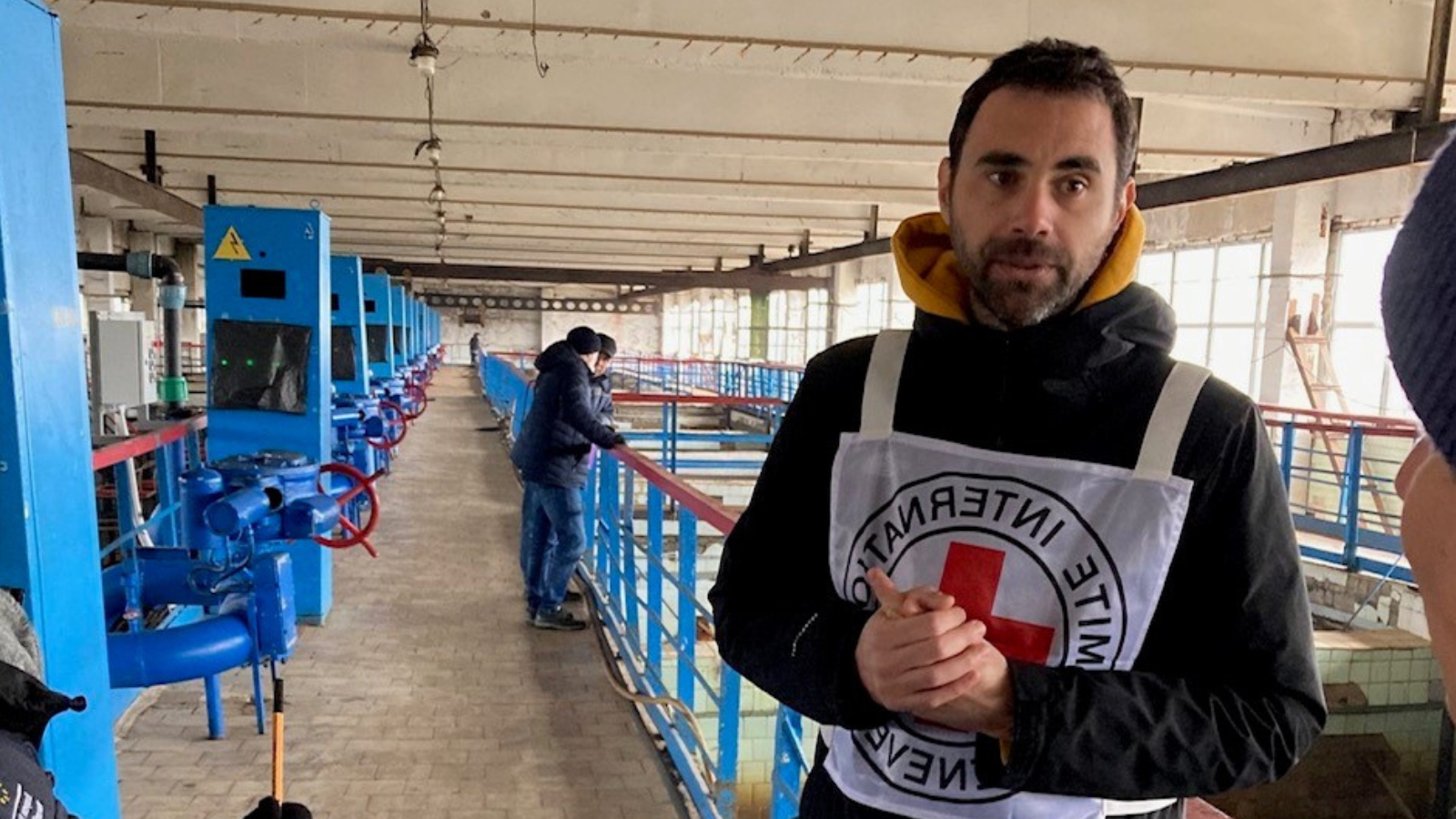
The International Committee of the Red Cross (ICRC) provides humanitarian assistance to people affected by armed conflict or natural disasters in conflict zones. It employs some 17,300 people in over 100 countries.
In particular, the ICRC works to ensure access to water in these areas, in order to create or maintain sustainable living conditions and limit the suffering caused by damage to homes or water supplies.
With more than 20 years of uninterrupted collaboration, OiEau has a detailed knowledge of the ICRC's operations and internal rules, as well as the specific nature of its missions.
At the beginning of February, a group of around fifteen ICRC members came to Limoges to attend a training course on the diagnosis of high-capacity water installations. Coming from Yemen, Iraq, Syria, Congo and Ukraine, the group was representative of the variety of areas where the ICRC is currently active.
Jérôme Guillaumot, a CRC's Water and Habitat engineer, gave us an insight into how operators work in the field and spoke about the training they receive at OiEau.
Can you introduce yourself?
I'm French, and I'm currently working for the ICRC in Ukraine, in the south of the country. Our role there is to help local water companies affected by the conflict.
Can you introduce the other members of the group?
There are different types of people who take the course:
- There are expatriates, like me, who work for one or two years in one country, then carry out another mission in other regions;
- There are also national staff, engineers and water professionals, resident in each country, who work for the ICRC in their country of origin.
So we're talking about two different publics, with different positions and responsibilities in the field. This corresponds to the ICRC's modus operandi: it recruits local and expatriate staff, then creates teams in the field. Then it's a matter of developing projects with the beneficiaries, who are often the water services in the towns. Because as soon as there's a war, in urban areas it's often the water plants and networks that are affected.
Is this your first OiEau training course?
This is the second time I've come to OiEau for training. The first was in 2015, on sanitation, sewerage networks and wastewater treatment plants. And today, on drinking water, the diagnosis of water installations for high-capacity water supply.
These two courses have been developed specifically for the needs of the ICRC.What do you see as the strengths of OiEau training courses?
One of the big advantages over other training courses I've done is that OiEau's trainers are aware of the difficulties we face in the field, because they've often already been to conflict zones with the ICRC. They know and understand the situations we encounter and are able to offer us training that is really adapted to our needs, and not just theoretical. That's the added value I find in these courses, they're very professional: the content, the teaching, the methodology adopted for the courses is very good, and the knowledge is passed on effectively.
There's also the technical hall, where you can see the equipment, the pumps and the tools: you can see, touch and test them. And that's really valuable.
After the training, will the participants return to their home countries to help get the facilities up and running again and ensure that drinking water is distributed to the population?stallations et assurer la distribution d’eau potable à la population ?
Exactly, yes. Because war or conflict may have completely disrupted access to drinking water: the source may have been contaminated by an upstream water treatment plant that stopped working, or the treatment processes may have been destroyed deliberately, in order to reduce the water supply to certain populations.
Everything will have to be put back into working order. That's what we're learning in this training course, which is about diagnosing water production plants. We'll have some very practical solutions that we can propose to the local operator. This is very useful when the pumps stop working because of an incident.
ICRC representatives like me can also propose new projects, new technologies seen by OiEau, to serve water in countries that don't necessarily have access to the same knowledge that we have in Europe.
And here again, thanks to the relationship of trust established with the OiEau trainers, we can ask them questions very specific to our project and they will give us the answers to unblock a problem in the field.
Are there any organisational or administrative difficulties?
In general, things go very well. The ICRC and OiEau have a well-established partnership, and we've been taking CFME training courses for a very long time. And that's another strong point: in terms of logistics, OiEau helps us organise the training, with transport for participants, accommodation, even minor things like lunch, for example. This helps to make the courses more effective.
Unfortunately, there can be exceptions: some of our colleagues from countries in crisis do not receive visas to come to the course. This has been the case for some of our colleagues from Afghanistan, Syria and Yemen in recent years.

